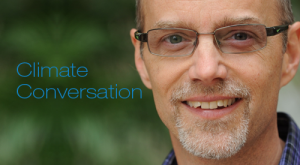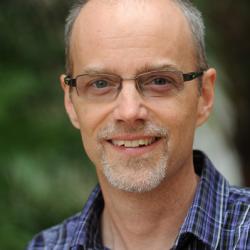Looking back in order to go forward on climate change
 A recently-published book tracing the history of climate in the West offers some interesting insights about how one could frame a conversation around climate change. B. Lynn Ingram and Frances Malamud-Roam, the authors of The West without Water, remind us that our region has a climate history that includes prolonged droughts, catastrophic floods, and devastating wildfires. A record of these profoundly disruptive events can be found in tree rings, sediment cores from lake beds and glaciers, and archeological remains across the West, providing a consistent and tumultuous narrative for our region.
A recently-published book tracing the history of climate in the West offers some interesting insights about how one could frame a conversation around climate change. B. Lynn Ingram and Frances Malamud-Roam, the authors of The West without Water, remind us that our region has a climate history that includes prolonged droughts, catastrophic floods, and devastating wildfires. A record of these profoundly disruptive events can be found in tree rings, sediment cores from lake beds and glaciers, and archeological remains across the West, providing a consistent and tumultuous narrative for our region.
It is a narrative that most Westerners have an inkling of as of late. Many parts of the West are experiencing abnormally dry to severe drought conditions. Exceptionally devastating wildfires now occur every summer, and recently we were all witness to the flooding along Colorado’s Front Range. To the extent that these and future events sensitize the public about climate and its causes, they may offer a springboard for discussing climate change and, in particular, adapting to its impacts.
That conversation could begin by looking not at what lies ahead, but instead by looking back. Taking our cues from George Santayana (“Those who cannot remember the past are condemned to repeat it”), climate change advocates might draw on stories of the past, engaging local residents in building these narratives based on their own experiences and those of their families, relatives, and community members. It does not require going too far back in time before events are remembered that can be placed in a broader historic and contemporary climate context.
Community members could be brought together to prepare for similar events in the future by creating a community climate adaptation plan: improving emergency response capabilities, conserving or more efficiently using and reusing water, protecting and restoring forests and watersheds, or limiting development in high-risk areas. These actions may not comprehensively address the broad impacts of climate change (like changes in the amount and timing of snowmelt), but they would represent an important first step in increasing the number of climate-smart communities in the West.

John Shepard

Latest posts by John Shepard (see all)
- A climate conversation for the Colorado River basin - March 19, 2014
- Climate change and the current drought in the Southwest - March 17, 2014
- Climate change: a business risk we can’t ignore - February 6, 2014

4 Responses to Looking back in order to go forward on climate change
You must be logged in to post a comment Login